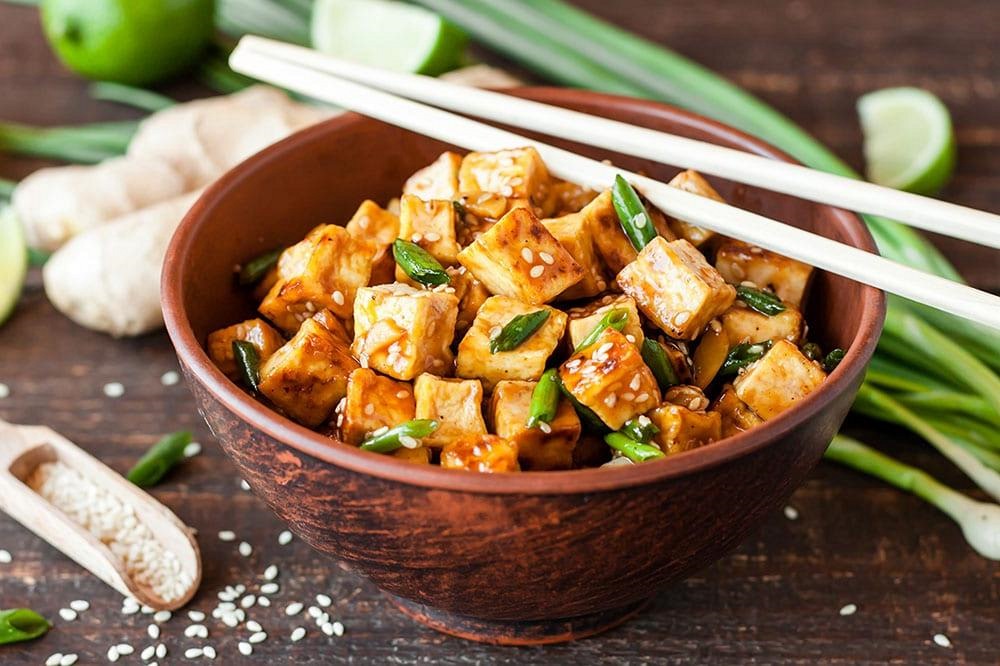Last Updated on: 18th December 2024, 12:34 pm
Veganism, a diet free from animal products, is often misunderstood in athletics. Some believe vegan athletes might lack necessary nutrients for peak performance. This article provides a clear, evidence-based guide on how vegan athletes can meet their nutritional needs and excel in sports.
A well-planned vegan diet can fuel high levels of athletic performance. Understanding the balance of macronutrients and micronutrients is essential for stamina, recovery, and health. This guide aims to inform athletes considering a vegan lifestyle, ensuring they achieve their goals without compromise.
Nutritional Concerns for Vegan Athletes

Protein: The Building Block
- Lentils, chickpeas, tofu, and quinoa are rich protein sources.
- Provide a complete amino acid profile when combined correctly.
- Maximize absorption by spreading intake throughout the day.
Iron: Fueling the Fire
- Plant-based sources like spinach, lentils, and fortified cereals.
- Pair with vitamin C-rich foods like oranges or bell peppers to boost absorption.
Calcium and Vitamin D: The Framework of Strength
- Sunlight is the best vitamin D source; fortified plant milks and supplements can help.
- Calcium-rich foods include kale, almonds, and fortified tofu.
Omega-3 Fatty Acids: The Edge in Recovery
- Flaxseeds, chia seeds, and walnuts are excellent vegan sources.
- Essential for inflammation control and recovery.
Embracing a vegan diet as an athlete means paying close attention to these nutrients. With the right knowledge and planning, vegan athletes can thrive, proving that peak performance is sustainable on a plant-based diet.
Meeting Energy and Macronutrient Needs

Understanding Energy Requirements
Every athlete’s energy needs are unique, shaped by their sport, training intensity, and goals. Endurance athletes rely heavily on carbohydrates for sustained energy, while strength athletes may focus more on protein for muscle repair and growth. Tailoring nutrition to these needs is crucial for peak performance.
Striking the Right Balance
- Carbohydrates are the primary fuel source, especially important for high-intensity workouts.
- Fats are vital for long-term energy and hormone production.
- Proteins are the building blocks of muscle, indispensable for recovery and growth.
Meal Planning and Timing
- A carbohydrate-rich meal 2-3 hours before training provides necessary fuel.
- Post-workout, a mix of carbohydrates and protein aids in recovery and muscle repair.
- Small, balanced meals throughout the day keep energy levels steady and support overall health.
Practical meal planning for vegan athletes might include smoothies with vegan protein powder, fruits, and leafy greens, or bowls of quinoa, beans, and vegetables. Snacks like nuts, seeds, and whole fruits are excellent for energy boosts. Embracing variety ensures a spectrum of nutrients and keeps meals interesting.
Micronutrients: The Unsung Heroes

Vitamin B12: A Keystone for Energy and Health
- Ensuring adequate B12 intake is paramount, as natural plant sources are scarce.
- Fortified foods and supplements offer a reliable solution.
- A simple daily B12 supplement can maintain energy levels, prevent fatigue, and support overall health.
Zinc: The Muscle Mender
- Vegans can turn to lentils, chickpeas, seeds, and nuts for zinc.
- These plant-based options promote muscle repair and bolster the immune system.
Antioxidants: The Shield Against Oxidative Stress
- A vegan diet is high in antioxidants, with foods like berries, spinach, and walnuts.
- Helps combat oxidative stress and inflammation, enabling quicker recovery and improved performance.
Understanding and integrating these micronutrients into a vegan athlete’s diet can bridge the gap between good and great performance. With strategic planning and smart food choices, vegan athletes can thrive, achieving their goals with vitality and vigor.
Supplements and Vegan Athletes

Assessing the Need for Supplements
For vegan athletes, the journey to peak performance is paved with careful nutritional planning. Assessing the need for supplements begins with understanding one’s diet and the demands of their sport. It’s about enhancing health and performance through targeted support.
Recommended Supplements for Performance and Health
Vitamin B12, iron, calcium, vitamin D, and omega-3 fatty acids are critical supplements for vegan athletes. B12 is essential for energy and health, while iron supports oxygen transport. Calcium and vitamin D strengthen bones, and omega-3s aid in recovery and inflammation control. Incorporating these supplements can significantly impact an athlete’s performance and well-being.
Navigating Supplement Labels and Certifications
Understanding labels and certifications is crucial. Look for third-party certifications to ensure quality and purity. Vegan athletes should seek products specifically labeled as vegan, and, when possible, opt for organic and non-GMO supplements. This diligence ensures that supplements align with dietary preferences and performance goals.
With the right approach, vegan athletes can navigate the world of supplements effectively, ensuring they meet their nutritional needs for health and performance. By choosing wisely and supplementing strategically, athletes can fuel their bodies for success, proving that a plant-based diet can support high levels of athletic achievement.
Success Stories and Strategies from Vegan Athletes

Learning from the Best
Success in athletics often involves rigorous training and strict dieting. Vegan athletes are no exception, and their success stories showcase the power of plant-based nutrition. Interviews with these trailblazers reveal a commitment to a diet that supports both ethical values and performance goals.
Daily Routines and Dietary Strategies
- Consistency is key. Many vegan athletes start their day with a smoothie packed with fruits, vegetables, and plant-based proteins.
- Meal Planning. Meals are carefully planned to include a variety of nutrient-dense foods, ensuring a balance of carbohydrates, proteins, and fats.
- Smart Snacking. Snacking on nuts, seeds, and whole fruits provides energy and aids in recovery throughout the day.
Overcoming Challenges
- Protein Intake. Ensuring adequate protein intake and avoiding nutrient deficiencies are common challenges. Education and planning are key.
- Diet Variety. Athletes stress the need for variety in their diet to cover all essential nutrients and the strategic use of supplements when necessary.
Common Pitfalls
- Calorie Intake. One common pitfall is underestimating the importance of calorie intake. Vegan athletes must ensure they consume enough calories to fuel their training.
- Processed Foods. Another pitfall is the reliance on processed vegan foods, which can be high in sodium and additives while lacking in essential nutrients. Sticking to whole, unprocessed foods as much as possible is a strategy many successful vegan athletes follow.
These insights guide aspiring vegan athletes. By learning from those who have achieved greatness, newcomers can navigate their paths to success, armed with proven strategies and a deeper understanding of what it takes to excel on a plant-based diet.
Summing Up
Vegan athletes thrive, debunking dietary myths. Their success, rooted in meticulous planning and diverse nutrition, showcases resilience. By balancing protein, micronutrients, and energy needs, they prove plant-based diets fuel peak performance. Let their journeys inspire a shift towards sustainable athleticism, inviting others to explore the power of veganism in sports.

